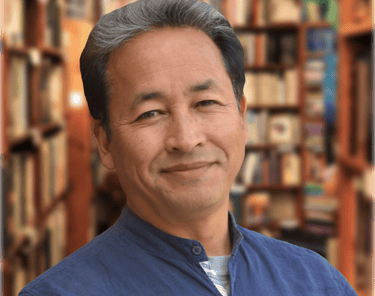Sonam Wangchuk Arrested After Violent Ladakh Protest: Activist’s Detention Sparks National Debate
Renowned Ladakhi innovator and activist Sonam Wangchuk has been arrested following a violent protest in Ladakh. The incident has ignited heated discussions across India about local grievances, environmental concerns, and the Centre’s policies for the Himalayan region. Wangchuk’s detention has drawn widespread attention, with supporters calling it an attack on peaceful activism, while authorities defend it as a step to maintain law and order.


By: Bharat Daily Samachar Date: 26 Sep,2025
Introduction
Ladakh, India’s cold desert and one of its most sensitive border regions, is once again in the spotlight—but not for its breathtaking landscapes or strategic importance. This time, it’s because of the arrest of renowned innovator and activist Sonam Wangchuk. The move came after a protest in Ladakh turned violent, prompting authorities to take swift action.
Wangchuk, widely admired for his sustainable innovations and his campaigns for Ladakh’s environment, is now at the center of a national conversation about democracy, dissent, and development in one of India’s most fragile ecosystems.
Who is Sonam Wangchuk?
For many across India and the world, Sonam Wangchuk is more than just an activist—he’s an innovator, education reformer, and environmental crusader.
Innovator: Founder of the Himalayan Institute of Alternatives, Wangchuk has pioneered eco-friendly solutions such as “ice stupas” to address Ladakh’s water shortages.
Educator: His work inspired characters in films like 3 Idiots, earning him recognition as someone who challenges conventional learning.
Activist: Over the last few years, he has become a strong voice for Ladakh’s people, advocating for sustainable development, local rights, and constitutional safeguards under the Sixth Schedule.
His arrest, therefore, isn’t just about one protest—it’s about a man whose influence stretches far beyond Ladakh.
The Protest That Sparked the Arrest
The incident leading to his detention unfolded when protests in Ladakh escalated into violent clashes. What began as a peaceful demonstration reportedly spiraled out of control, with tensions between locals and security forces boiling over.
Residents were voicing grievances about:
Environmental damage caused by unchecked development projects.
Demand for statehood and protection of Ladakh’s unique cultural identity.
Concerns over land rights and fears of exploitation by large corporations.
Authorities claim that once the protest turned unruly, intervention became unavoidable. Wangchuk, as one of the most visible leaders of the movement, was taken into custody.
Government’s Stand
Officials have defended the arrest as a law-and-order measure. According to them:
Violence during protests cannot be tolerated, regardless of who leads them.
Maintaining peace in Ladakh, given its sensitive location near India’s borders with China and Pakistan, is of utmost importance.
Leaders must take responsibility if demonstrations they guide spiral into unrest.
From the government’s perspective, this was not an attack on free speech but a necessary step to prevent further escalation.
Supporters Rally Behind Wangchuk
Yet, the arrest has not gone down quietly. Across Ladakh and beyond, Wangchuk’s supporters are rallying in his defense.
Local Voices: Many Ladakhis see him as their spokesperson, someone who articulates their struggles on national platforms.
National Activists: Environmentalists and civil society groups across India are condemning the move, calling it an assault on peaceful protest and grassroots activism.
Social Media Reaction: Hashtags demanding his release are trending, with citizens questioning whether peaceful dissent is being stifled.
The controversy has quickly shifted from a local incident to a nationwide debate about how India handles activism.
Broader Issues at Stake
Wangchuk’s arrest has reignited old debates about Ladakh’s place in India’s political and environmental landscape.
1. Demand for Constitutional Safeguards
Ever since Ladakh was carved out of Jammu and Kashmir as a Union Territory in 2019, locals have been pressing for statehood and protections under the Sixth Schedule to safeguard their land and culture.
2. Environmental Concerns
With increasing tourism, infrastructure projects, and climate change, Ladakh’s fragile ecosystem faces serious threats. Wangchuk has long argued that development must respect ecological limits.
3. Democracy and Dissent
The arrest raises questions about freedom of expression. Can a movement led by a peaceful activist be criminalized if some elements turn violent?
National and International Attention
The story is no longer confined to Ladakh. Prominent intellectuals, opposition leaders, and international media outlets are taking note.
In India: Political parties are using the issue to target the government’s stance on dissent and minority voices.
Globally: Wangchuk, with his reputation as an innovator, commands international respect. His detention could draw scrutiny from global human rights groups.
This has turned what might have been a local law-and-order issue into a symbolic battle over rights and governance.
What Lies Ahead
Wangchuk’s arrest may be the beginning of a longer confrontation between Ladakhi activists and the government. Possible scenarios include:
Legal Battles: Wangchuk and his supporters are likely to challenge his detention in court.
Prolonged Protests: Arrests often fuel more dissent; this move may strengthen the Ladakhi movement.
Policy Reconsideration: If pressure mounts, the Centre might revisit its approach to Ladakh’s demands.
Conclusion
The arrest of Sonam Wangchuk is not just about one man being taken into custody—it is about the larger struggle of Ladakh’s people to preserve their rights, land, and environment.
While the government defends its decision as necessary for peace and order, the move has triggered a storm of questions about democracy, dissent, and development in India’s Himalayan frontier.
As Ladakh braces for the days ahead, one thing is clear: this arrest has transformed a local protest into a national debate, with Wangchuk emerging as a symbol of resistance and resilience in the face of state power.
